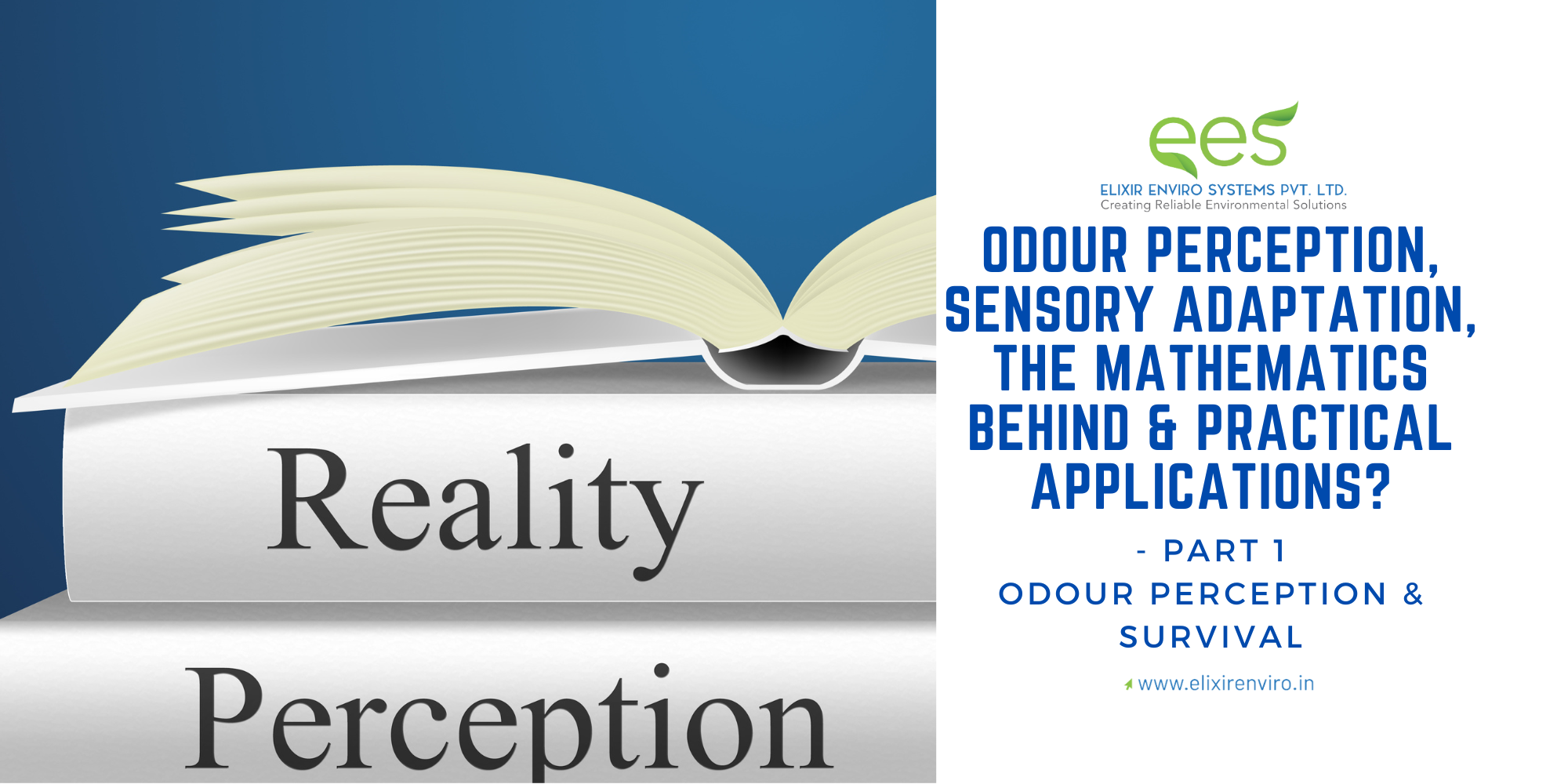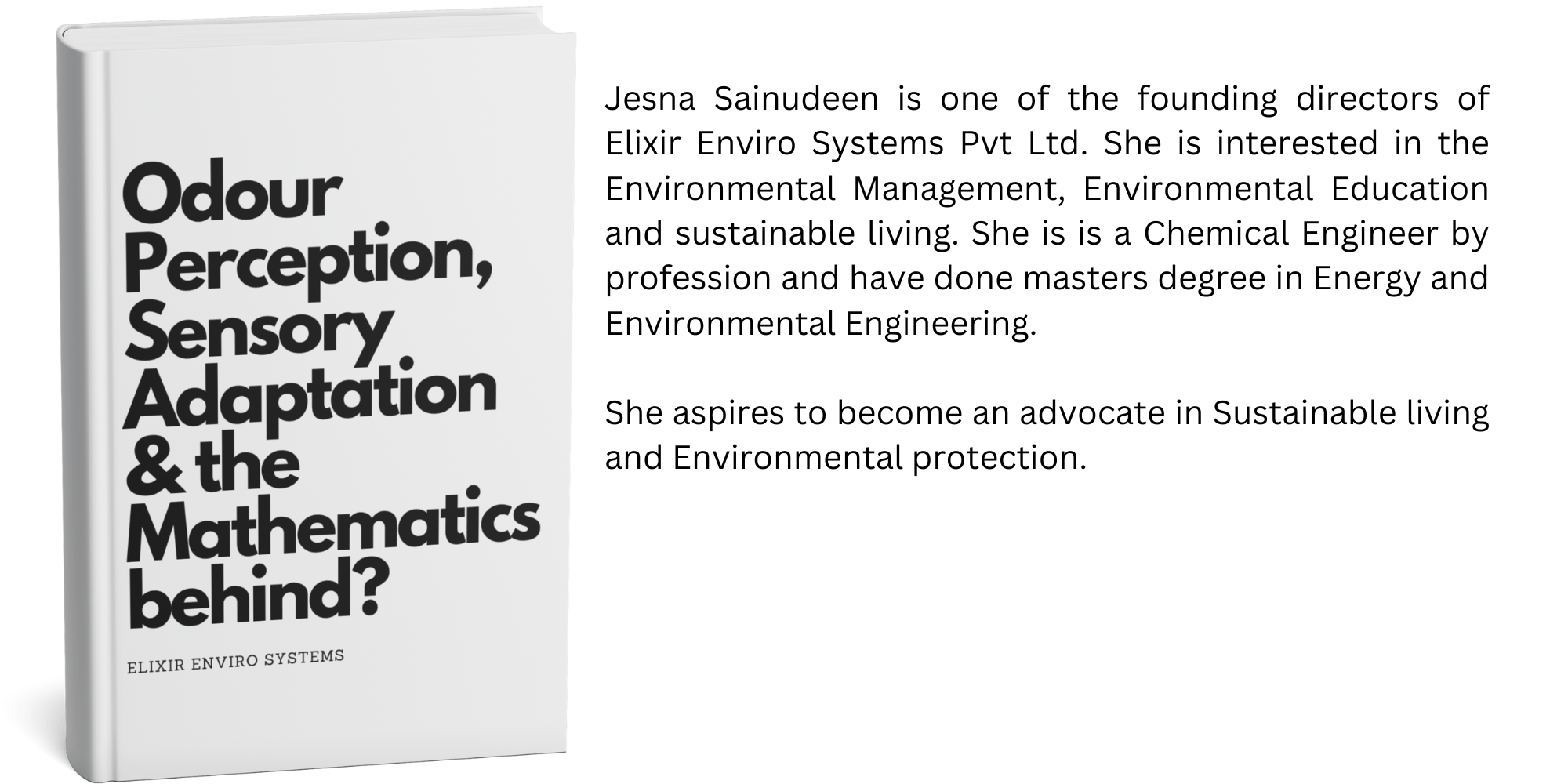
Odour plays a significant role in various aspects of human life; for some it is influencing emotions or memories, sometimes odour comes as a warning for health and safety, social interactions such as identifying partners, and for some its behavioural to a culture or a tribe.
To many, the childhood memories or emotions are mostly connected with odours or smell. Sometimes people go back to the memories when they get the smell back. Some people practice aromatherapy to influence the mood of a person just using specific smell. Though many scents are tagged as soothing/relaxing. It is at this juncture; some people have used citrous based sprays to mask the “bad” odour from wastewater treatment plants. But later it was understood that the spraying has no effect is some other people to some and whereas it is arguably created the opposite effect on others.
Odour many times is just a signal to escape from a particular place. It is like the body signalling you to run away or, in other cases, avoid some kind of food. An example to site may be-It is said that the smell of gas leakage or plastic burning etc is detected sends a signal into the body to move from that site. Similarly, the odour of spoiled/rotten foods sends a signal to your body to keep away from this particular type of food.
Odour plays a multidimensional role in human life: emotions, health, social interactions, safety, and cultural practices. Understanding the role of odour helps appreciate its importance it plays in shaping human experiences and behaviours.
Odour perception, also known as olfaction, is the process by which the brain interprets and recognizes chemical molecules in the air as distinct smells. Human nose has about 500 different odour receptor inside the nose and by this human can identify more than one trillion smells.
The power of human nose unimaginable. That is one of the reasons why many countries use olfactometry as the standard test for odour measurement, which is unmatchable using any other sensors for that matter.
Odour perception is influenced by a variety of factors, ranging from biological and physiological to psychological and environmental. Here are some of the key factors:
(i) Genetic Differences – Olfactory Receptor Variability
Some people have a highly “sensitive nose”, while some others won’t be able to detect or differentiate many smells. This could be due to the genetic differences affect the number and types of olfactory receptors a person has, influencing their ability to detect and differentiate odours.
(ii) Age
Elderly people tend to have sensitivity to light odours. As people age, their sense of smell typically diminishes due to a reduction in the number of olfactory receptors and changes in the olfactory bulb.
(iii) Health Conditions – Infections amp; Hormones
Respiratory Infections and Conditions like colds, sinus infections, or chronic illnesses (e.g., Parkinson’s disease, Alzheimer’s disease) can impair olfaction or last couple of years many people experienced a temporary loss of smell due to Covid -19 infections. Similarly, changes in hormone levels, such as during pregnancy or menstruation, can alter odour perception.
(i) Expectations and Beliefs
If someone believes a scent is relaxing, they may feel more relaxed when they smell it, even if the scent is neutral. An individual’s expectations and beliefs about a smell can influence their perception and experience of it; many calls it placebo effect.
(ii) Emotional State
A person’s current emotional state can impact how they perceive odours. Positive moods can enhance pleasant smells, while negative moods can intensify unpleasant ones. A person who is stressed might find a smell more irritating than they would if they were calm.
(iii) Attention and Focus
In a quiet room, a person might detect faint odours that they wouldn’t notice in a noisy environment. Or in other words, Paying close attention to smells can enhance perception and discrimination, while distractions can diminish the ability to notice odours.
(i) Odour Mixtures
Complexity of Scent, for example the smell of coffee can be perceived differently in a café where multiple food and drink odours are present compared to a sterile laboratory setting. The presence of multiple odours can influence the perception of individual scents, either masking. This is the reason that Elixir Enviro System is not recommending or practicing masking or spraying chemicals than treating the air.
(ii) Temperature and Humidity
Higher temperatures and humidity levels can enhance the volatility of odour molecules, making them more detectable. For example, A perfume might smell stronger and spread more widely in a warm, humid environment compared to a cold, dry one.
(iii) Adaptation and Habituation
Continuous exposure to an odour can lead to decreased sensitivity, a phenomenon known as olfactory adaptation or habituation. A person working in a bakery might become less sensitive to the smell of baked goods over time.
(i) Cultural Background
The smell of certain spices might be pleasant and familiar to individuals from one culture but unfamiliar or even unpleasant to those from another. Cultural background can shape odour preferences, aversions, and interpretations.
(ii) Social and Personal Experiences
Associations with specific odours because of past experiences and memories can modulate the perception. While one person may experience the smell of a given flower as pleasant, associating it with happy childhood memories, another may associate it with allergies.
Odour perception is, therefore, a biological, physiological, psychological, environmental, cultural, and social interaction of factors that determine the modality with which a person detects, interprets, and responds to different odours; thus, the experience of odours becomes highly subjective and variable across different contexts and individuals.

Environmental odour refers to smells present in the environment, often stemming from various natural and human activities. Natural sources like marshy lands, moist soil, gardens, forest fires, ocean, salt water etc are few examples. Whereas odour generation due to the human activities can be very broadly classified into the following.
a) Livestock production: Especially from Confined Animal handling due to the animal manure and animal waste
b) Urban Areas: Cities can have a mix of odours from traffic emissions, food establishments, and general urban activities.
c) Waste Management: Municipal activities such as Compost, sewage, garbage, fires, landfills, household cleaning agents can emit bad smells.
d) Industrial Activities: Petrochemical Industries, paper mills, various types of food and feed manufacturing facilities, Pharmaceutical Industries, various factories including but not limited to the foundries, paint manufacturing, rubber processing, Chemical factories and wastewater treatment plants can emit strong smells, often due to the release of volatile organic compounds (VOCs), sulphides or ammonia bearing compounds.
These odours can impact the quality of life, health, and well-being of individuals exposed to them. Managing environmental odours involves using technologies and practices to reduce or eliminate their sources, such as air biofilters, scrubbers and so on.
As a flip side, Odour perception plays a crucial role in survival by helping organisms detect and respond to environmental signals that are essential for avoiding danger, finding food, and facilitating social and reproductive behaviours.
So far we have discussed about the odour perception, the factors affecting the odour perception and importance of odour in life. Let’s understand the mathematical correlations in odour perception in the next blog.
Jesna Sainudeen LinkedIn Profile





